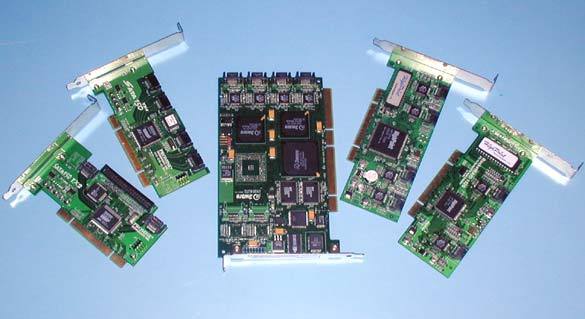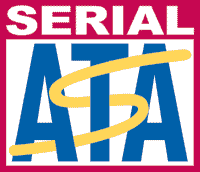Serial ATA Is Here: Seagate Barracuda ATA V and Five of the Latest Controllers Reviewed
Get Tom's Hardware's best news and in-depth reviews, straight to your inbox.
You are now subscribed
Your newsletter sign-up was successful
An Overview Of Serial ATA Controllers
In the past few weeks, our test labs received five controllers: the Promise SATA 150 TX2 and TX4; the HighPoint RocketRAID 1520 and 1540; and 3Ware's Escalade 8500-8. While Promise and HighPoint should be familiar names to most users (their chips are fitted to every third motherboard sold), 3Ware offer virtually no products for the mainstream market.
HighPoint products are aimed at the advanced home PC user and budget server systems. So far, this manufacturer has not included any high-end products in its range. Promise Technology has been supplying more critical customers with the SuperTrak series for nearly two years. This enables the PC user to set up a RAID 5 array using IDE drives.
Not only does 3Ware supply IDE controllers with up to twelve channels, it is also the only manufacturer to provide Serial ATA RAID with four, eight or twelve channels, and is thus already well placed for future developments. All cards catering for four channels or more support RAID Mode 5, and are therefore suitable for more advanced applications.
There are differences in the OS support provided by the three manufacturers. While 3Ware supports Linux (SuSe, Red Hat) and all versions of Windows, Promise also supports Mandrake-Linux. Although HighPoint does not support the latter, it does make a driver for FreeBSD available for download.
Performance Restrictions With Serial ATA
When dealing with Serial ATA, we have to differentiate between two categories of controller: native Serial ATA controllers, and those that support the new interface with the help of Serial ATA bridges (chips that convert from Parallel to Serial ATA). The solutions we have seen so far from HighPoint and 3Ware have been based on bridges, while Promise has already implemented native controllers.
Both solutions work, but the bridges consume a considerable portion of the available bandwidth. In practice, you are left with no more than 60 to 80 MBytes/sec out of the specified 150 MBytes/sec. For the very near future, this performance will still be adequate, as even the fastest IDE hard disks are unable to deliver more than 50 MBytes/sec. Even the next generation of drives is unlikely to exceed 80 MBytes/sec, which means that most of the controllers reviewed here will be fast enough - in the medium term, at least.
With RAID arrays, the limitations of the PCI bus are certainly a more critical factor, since the maximum performance of 60 to 80 MBytes/sec we mentioned applies to each channel. Intelligent controllers can bundle the bandwidth of several channels to provide a higher overall bandwidth. However, the maximum PCI bandwidth (133 MBytes/sec at 33 MHz and 32 bit) then becomes the bottleneck. 66 MHz controller cards would be the ideal solution, doubling the available bandwidth, but all PCI devices must support this, which is very rare in practice.
Get Tom's Hardware's best news and in-depth reviews, straight to your inbox.
Only 3Ware offers controllers with 64 bit PCI interface, which take this hurdle in stride.
Current page: An Overview Of Serial ATA Controllers
Prev Page Installation: Easier Than Ever Before Next Page Promise SATA150 TX2
Patrick Schmid was the editor-in-chief for Tom's Hardware from 2005 to 2006. He wrote numerous articles on a wide range of hardware topics, including storage, CPUs, and system builds.

